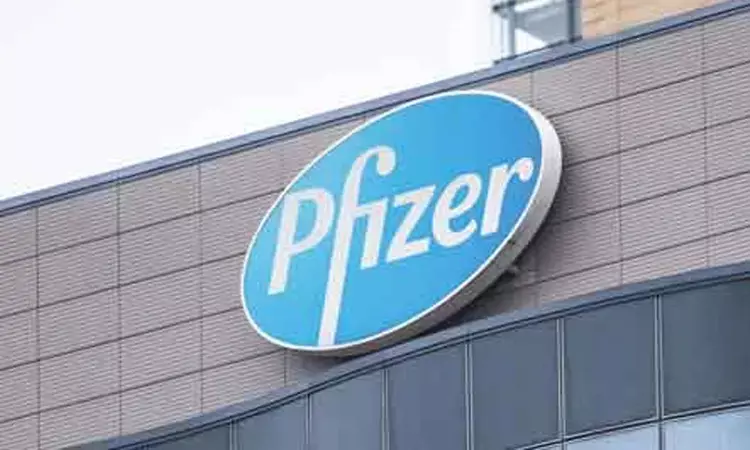- Home
- Medical news & Guidelines
- Anesthesiology
- Cardiology and CTVS
- Critical Care
- Dentistry
- Dermatology
- Diabetes and Endocrinology
- ENT
- Gastroenterology
- Medicine
- Nephrology
- Neurology
- Obstretics-Gynaecology
- Oncology
- Ophthalmology
- Orthopaedics
- Pediatrics-Neonatology
- Psychiatry
- Pulmonology
- Radiology
- Surgery
- Urology
- Laboratory Medicine
- Diet
- Nursing
- Paramedical
- Physiotherapy
- Health news
- Fact Check
- Bone Health Fact Check
- Brain Health Fact Check
- Cancer Related Fact Check
- Child Care Fact Check
- Dental and oral health fact check
- Diabetes and metabolic health fact check
- Diet and Nutrition Fact Check
- Eye and ENT Care Fact Check
- Fitness fact check
- Gut health fact check
- Heart health fact check
- Kidney health fact check
- Medical education fact check
- Men's health fact check
- Respiratory fact check
- Skin and hair care fact check
- Vaccine and Immunization fact check
- Women's health fact check
- AYUSH
- State News
- Andaman and Nicobar Islands
- Andhra Pradesh
- Arunachal Pradesh
- Assam
- Bihar
- Chandigarh
- Chattisgarh
- Dadra and Nagar Haveli
- Daman and Diu
- Delhi
- Goa
- Gujarat
- Haryana
- Himachal Pradesh
- Jammu & Kashmir
- Jharkhand
- Karnataka
- Kerala
- Ladakh
- Lakshadweep
- Madhya Pradesh
- Maharashtra
- Manipur
- Meghalaya
- Mizoram
- Nagaland
- Odisha
- Puducherry
- Punjab
- Rajasthan
- Sikkim
- Tamil Nadu
- Telangana
- Tripura
- Uttar Pradesh
- Uttrakhand
- West Bengal
- Medical Education
- Industry
Pfizer expands production, adds suppliers for Covid-19 doses: Bloomberg

"We expect to increase the number of doses being shipped for the U.S. from an average of 5 million doses per week, which is the average now, to more than double," Bourla said.
New Delhi: Pfizer Inc. Chief Executive Officer Albert Bourla said Friday that the company will use more of its manufacturing capacity and work with new suppliers to ramp up production of the Covid-19 vaccine it developed with BioNTech SE.
Appearing at a Pfizer plant in Michigan with President Joe Biden, Bourla said the company will employ additional capacity at its Kalamazoo site to produce the shot's formulation as well as a component of the vaccine, known as lipids, which help deliver the genetic material into the body.
The drug giant also will increase lipid production capabilities at its plant in Groton, Connecticut, and add on so-called fill-finish capacity at its site in McPherson, Kansas. The fill-and-finish process is the final stage of production in which the shot is put into vials, packaged and shipped for distribution.
"We expect to increase the number of doses being shipped for the U.S. from an average of 5 million doses per week, which is the average now, to more than double," Bourla said.
Bourla said Pfizer has tapped two new contract manufacturers, and is also increasing the supply of raw materials from existing suppliers. The CEO noted that the Biden administration had "significantly aided our effort" by using the Defense Production Act to help secure crucial raw materials and equipment used at its various facilities.
Bloomberg reported in January that Pfizer would be able to supply the U.S. with 200 million doses of its two-shot vaccine regimen by the end of May, two months sooner than previously expected. It was able to accelerate its delivery figures partially because of a change in the Covid vaccine's label that allows health-care providers to extract an additional dose from each vial.
Increasing supply
New York-based Pfizer and its German partner BioNTech will be able to deliver 120 million doses in the U.S. within the first quarter, Bourla told Bloomberg at the time. As of Feb. 17, the companies had supplied the nation with 40 million doses, the CEO said alongside the U.S. president on Friday.
Globally, Pfizer and BioNTech aim to produce a total of 2 billion doses before year end.
On Thursday, Israeli researchers said a study found a single dose of the Pfizer-BioNTech vaccine reduced Covid infections by 85% among health-care workers. The results appeared to bolster the idea that governments could speed immunization by delaying the second dose, thus reaching a broader population with supply of the first.
Bourla said Pfizer is evaluating extending the dosing schedule but that current trial data doesn't support the idea.
"We do not know what will happen if we do not administer the second [dose], how long this duration of immunity will last," he said. "We don't think it will work with one right now."
Ruchika Sharma joined Medical Dialogue as an Correspondent for the Business Section in 2019. She covers all the updates in the Pharmaceutical field, Policy, Insurance, Business Healthcare, Medical News, Health News, Pharma News, Healthcare and Investment. She has completed her B.Com from Delhi University and then pursued postgraduation in M.Com. She can be contacted at editorial@medicaldialogues.in Contact no. 011-43720751


